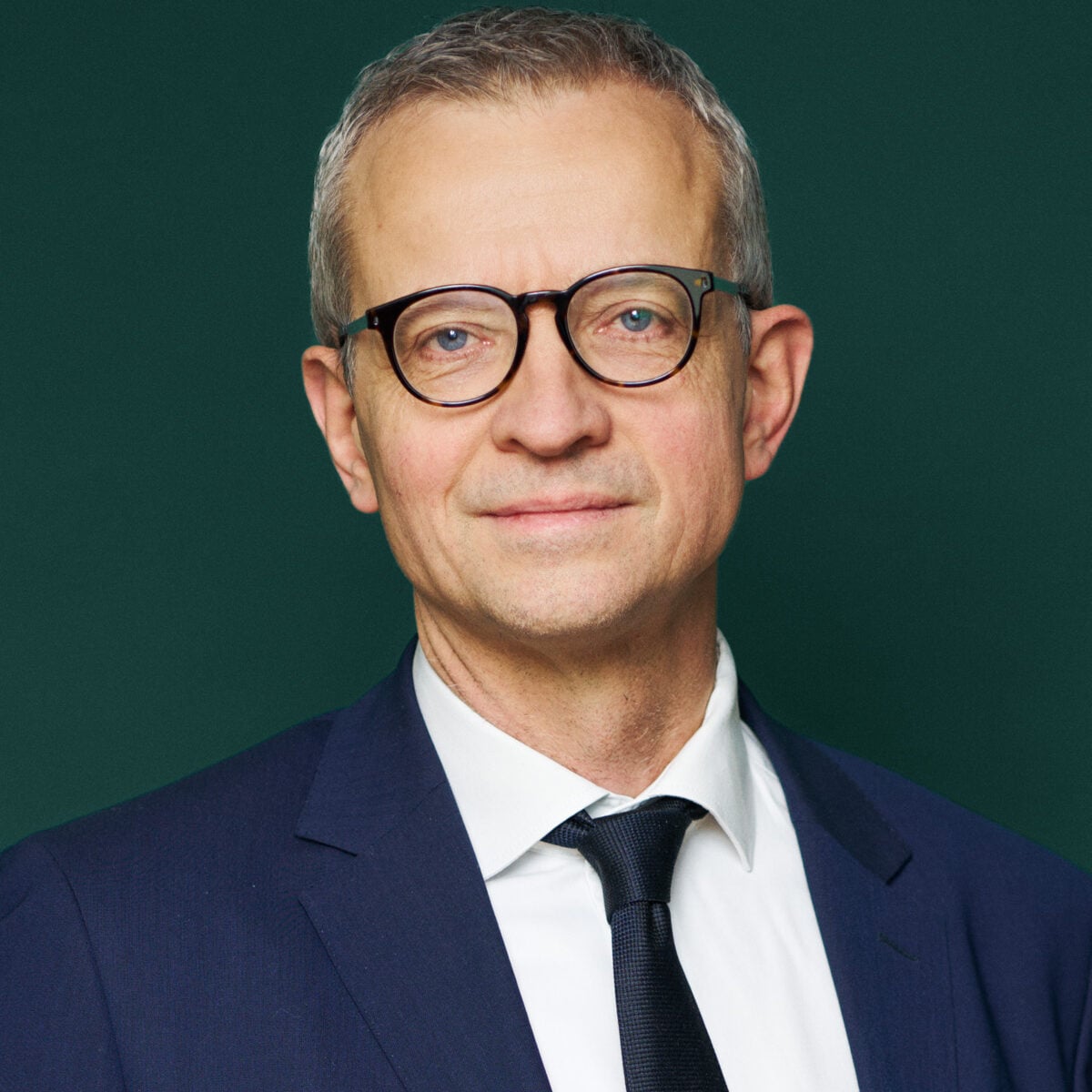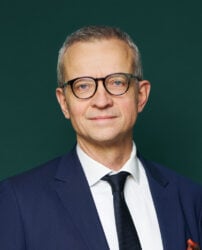 Interview with: Esben Kjær, Partner
Interview with: Esben Kjær, Partner

Moalem Weitemeyer
Esben Kjær’s arrival at Moalem Weitemeyer as Partner in 2025 has added significant veteran expertise to the Firm’s already solid track record in Real Estate & Infrastructure. With a focus on complex energy and infrastructure development and transactions, Esben Kjær and his team work closely with the Firm’s other teams, drawing on a broad range of expertise in real estate, private M&A, structuring, investment set-up, and joint venture. In this interview, Esben Kjær shares his perspective on the evolving landscape of energy and infrastructure law in Denmark.
What unique strengths does Moalem Weitemeyer’s Real Estate & Infrastructure practice bring to the table compared to other Danish law firms?
Moalem Weitemeyer’s Real Estate & Infrastructure practice, launched in 2025, combines our Firm’s Tier 1 expertise in corporate M&A and real estate with my 25 years of experience in complex energy and infrastructure transactions. This combination enables us to deliver integrated solutions with an uncompromising focus on our clients. Our practice is well-positioned to structure high-value deals, navigate regulatory complexities, and align projects with ESG objectives while drawing on deep market insight. Working closely with our Firm’s regulatory expert Partner Thomas Mygind, we provide coordinated advice across M&A, joint ventures, and project development. With a clear understanding of our clients’ commercial goals, we provide tailored strategies that maximize value, particularly in renewable energy and sustainable infrastructure. This multidisciplinary approach, rooted in Moalem Weitemeyer’s client-first culture of excellence, makes us a trusted partner for clients seeking innovative solutions in Denmark’s dynamic market.
Which segments of the real estate and infrastructure markets do you anticipate will grow over the next 12 months, and what factors are driving this momentum?
Denmark’s energy and infrastructure markets are set for robust growth, particularly in data centres, battery-energy storage systems, and microgrids. Data centres are booming due to rising digital demand, with projects integrating direct connections to renewable sources like heat power plants. Battery storage is critical for grid stability, supporting Denmark’s position as a leader in wind and solar energy. Microgrids, especially rooftop solar systems, are gaining traction for their resilience and sustainability, enabling tenants to access on-site power. Power purchase agreements (PPAs) are expanding, driven by corporate ESG commitments and the need for stable renewable energy supplies. These trends are propelled by Denmark’s ambitious green transition goals, technological advancements, and regulatory support for sustainable infrastructure. Moalem Weitemeyer’s Real Estate & Infrastructure practice is uniquely positioned to guide clients through these opportunities. We combine legal expertise with strategic insight and deliver projects that align with market demands and environmental priorities.
Since joining Moalem Weitemeyer in April 2025, what key initiative have you introduced to strengthen the Energy & Infrastructure practice for the benefit of clients?
Since launching the Real Estate & Infrastructure practice, I have focused on building a team that integrates Moalem Weitemeyer’s strengths in M&A, real estate, and regulatory advisory to deliver consistent client value. A key initiative has been strengthening cross-practice collaboration to create streamlined, end-to-end solutions for complex projects. By aligning transaction structuring with regulatory and real estate capabilities, we provide our clients with cohesive advice that accelerates project timelines and improves outcomes. Drawing on my 25 years of experience, I have introduced a sharper strategic focus on ESG-driven projects, positioning the practice to advise on sustainable energy and infrastructure. This approach meets client demands for innovative practical solutions and leverages Moalem Weitemeyer’s commercial mindset to deliver measurable results. It reinforces our commitment to client success and strengthens our position as a market leader in a rapidly evolving sector.
How is technology shaping the way Moalem Weitemeyer delivers legal services in real estate and infrastructure, and what benefits does this bring to your clients?
Technology plays a central role Moalem Weitemeyer’s practice. This allows us to deliver efficient, high-quality services. Through partnerships with legal tech providers such as Legora, Harvey, and Juristic, we use advanced and cutting-edge tools for contract automation, due diligence, and ESG compliance analysis. These platforms streamline complex processes such as risk assessments in infrastructure project or management of large-scale transaction documentation. This saves time and reduces costs. We prioritize training across the Firm, from our legal staff to Operations, to ensure maximum benefit from these tools. This technology-driven approach provides clients with data-driven insights and tailored solutions; from optimizing PPAs to evaluating renewable energy projects. It strengthens decision-making and project outcomes, demonstrating our focus on delivering client-centric advice that meets the demands of Denmark’s green transition and beyond.
Can you provide a practical example of how Moalem Weitemeyer has helped a client maximize value in a real estate or infrastructure project?
Our Real Estate & Infrastructure practice recently advised a client on a transformative project involving a mixed-use development with integrated renewable energy solutions. By combining our expertise in real estate, M&A, and regulatory compliance, we structured a transaction that incorporated battery storage and microgrid systems, improving the project’s sustainability and market appeal. Our team worked closely with our Family Offices practice to ensure alignment with long-term investment goals, while our regulatory experts secured critical approvals to expedite implementation. This holistic approach increased the project’s overall value by aligning it with ESG priorities and unlocking government incentives, positioning the client as a leader in sustainable development.
With clients increasingly seeking strategic partnerships in the real estate and infrastructure sectors, how is Moalem Weitemeyer positioned to meet these demands, and what is your vision for the practice in three years?
Moalem Weitemeyer’s strong position in corporate M&A, real estate, and regulatory advisory makes us a key player in delivering strategic partnerships in energy and infrastructure. Our Real Estate & Infrastructure practice, launched in 2025, leverages my 25 years of experience in complex transactions to provide tailored, client-focused solutions that address transactional, regulatory, and ESG needs. Over the next three years, I envision our practice expanding as a significant contributor among Denmark’s leading firms, with strong emphasis on infrastructure projects like trains, metro systems, and airports, alongside renewable energy initiatives. By deepening our expertise in these areas and continuing to work closely with our clients, we aim to support Denmark’s sustainable infrastructure agenda. With Partner Thomas Mygind leading our Regulatory team and our continued investment in legal tech, we are positioned to deliver efficient, high-value outcomes. Moalem Weitemeyer will continue to build on its already established reputation for commercially oriented, innovative advice, strengthening our role as a trusted partner in the evolving energy and infrastructure landscape.

